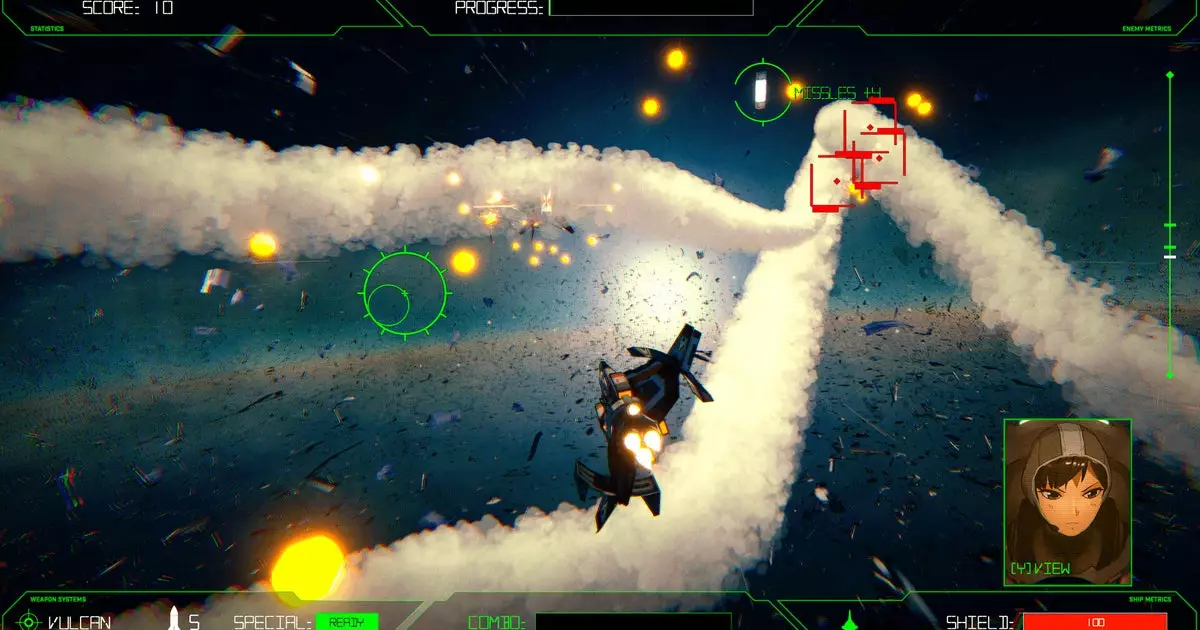Rogue Flight emerges as a promising title in the arcade space combat genre, drawing inspiration from beloved classics such as StarFox and the iconic animation styles of the 1980s and 90s. The game’s aesthetic captures the essence of “prestige anime,” a term that evokes nostalgia among enthusiasts while simultaneously sparking discussions about the mediums of storytelling and artistic expression in games. Scheduled for release later this year, Rogue Flight is poised to captivate both seasoned gamers and newcomers through its blend of exhilarating gameplay and rich narrative.
Players can expect to engage in dynamic aerial dogfights as they guide their customizable spacecraft through nine intricately designed stages. The advertised acrobatic maneuvers promise an engaging combat experience, encouraging players to perform daring moves while evading enemy fire. The game also introduces a branching narrative, allowing players the freedom to make choices that impact their journey, fostering a more personalized gaming experience. Additionally, the inclusion of an unlockable roguelite mode adds an extra layer of challenge, incorporating elements like permadeath that will undoubtedly heighten the stakes for players seeking a harder difficulty.
A significant selling point for Rogue Flight is its impressive voice cast, featuring notable Japanese actors recognized for their roles in legendary anime series such as Sailor Moon, Neon Genesis Evangelion, and One Piece. This choice undoubtedly aims to appeal to fans of the genre, though it highlights a broader debate amongst gamers regarding the preference for dubbed versus subbed content. While the original Japanese voices may resonate deeply with anime aficionados, it remains to be seen how the English version—staffed with talents from titles like Fallout 76 and Overwatch—will cater to different audiences.
Beyond the technical aspects of gameplay and star-studded voice casts, the thematic core of Rogue Flight resonates. Many players may connect with the melancholic undercurrent that often permeates anime narratives. The notion of piloting a “horrifying weapon” reflects a relatable struggle—bearing the weight of personal demons and external conflicts. The juxtaposition of the vibrant, action-packed universe with these darker themes invites players to explore the deeper implications of their in-game choices, making Rogue Flight not just a combat simulator but a nuanced commentary on the human condition.
With its stylish presentation, engaging gameplay mechanics, and emotional depth, Rogue Flight has the potential to carve its niche within the crowded landscape of space combat games. As fans await its release, there is a palpable excitement surrounding how this title will blend nostalgic references with contemporary gameplay. In a market that increasingly values both aesthetic and narrative complexity, Rogue Flight offers a compelling proposition that transcends mere entertainment, inviting players to engage with their own emotions as they navigate through the stars.


Leave a Reply